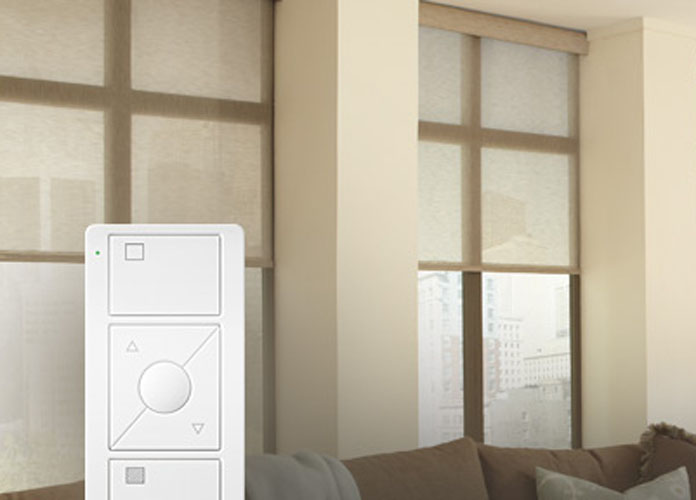Lutron’s Serena Remote Controllable Shades Make Another Smart If Pricey Addition To Your Home
The classic window shade gets a tech-makeover with Lutron’s Serena Remote Controllable Shades, which are one of the many new devices designed to work with Apple’s recently launched HomeKit.
The Serena Shades install wirelessly and are battery-operated (the batteries are said to last for upwards of four years before needing to be replaced) and like standard motorized shades, they come with a remote-control for simple use. However, smart home integration has opened a window for more customizable configurations, designed to adjust to the desired levels of daylight depending on the time or preset scenes. After purchasing a $150 Caseta Bridge, a direct-to-router device that lowers battery usage for WiFi and integrates Apple’s HomeKit, set-up can be completed in under-an-hour, with nothing more than a screwdriver.
Scenes are the most intuitive way to control your shades, and operate on a time clock—sunrise to sunset. Further customization, like connecting your shade to thermostat readings, will require third party tinkering through IFTTT or Elgato. There is also the ability to use Siri to control individual shades. Be warned that the scenes in HomeKit are not the same as Serena’s scenes, meaning Siri will not be able to activate them.
The most recent trend in smart home tech—and the most glitchy—is Geofencing, the option to let devices know when a user is at or away from home. These smart shades, according to a recent CNET review, perform this function well, albeit with a slight delay.
While Siri-operated shades sound like the must-have product of the future, their high price makes them an option for those truly willing and able to spend a lot for the high tech upgrade. At $350 per shade, outfitting an entire home would be costly for the average homeowner. Regardless, Serena Shades offer a taste of what smart home tech will bring in the next few years.
Get the most-revealing celebrity conversations with the uInterview podcast!








Leave a comment